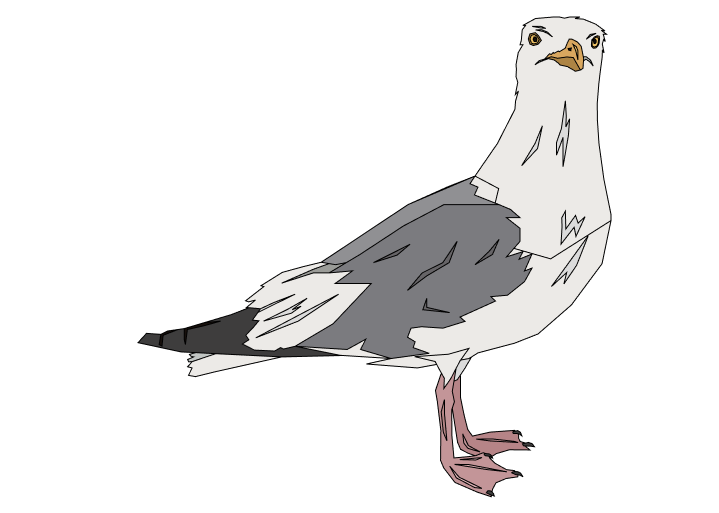The WordPress ecosystem is in the middle of a full-blown nerd slap-fight, with lawsuits, bans, and accusations flying between major players. At the center of this controversy are two key figures: Matt Mullenweg, co-creator of WordPress and CEO of Automattic, and WP Engine, one of the largest hosting providers for WordPress websites. But to understand why this is such a big deal, let’s start with some WordPress basics that often confuse even seasoned web professionals.
WordPress.com vs. WordPress.org:
One of the fundamental sources of confusion in this drama is the difference between WordPress.com and WordPress.org:
- WordPress.org is the open-source version of WordPress that anyone can download, install, and use on their own hosting server. This is the platform that powers over 40% of websites on the internet. It’s completely free, maintained by the community, and belongs to the WordPress Foundation—a non-profit entity meant to protect and govern the software.
- WordPress.com is a paid, managed hosting service run by Automattic, Mullenweg’s company. While it uses WordPress software, it is not the same as the open-source project. Think of it as a SaaS (software as a service) version of WordPress with added features, security, and maintenance, but with restrictions compared to a self-hosted WordPress.org site.
This distinction matters because many people, including businesses, assume that WordPress.com is WordPress when in reality, it is just one company that happens to provide hosting for it. This confusion plays a significant role in the current battle between Mullenweg and WP Engine.
The WP Engine vs. Automattic Feud
How It Started
In mid-September, Matt Mullenweg publicly called WP Engine a “cancer to WordPress,” accusing the company of profiting off the open-source project without giving back enough to its development. He also argued that the name “WP Engine” misleads customers into thinking it’s an official part of WordPress.
In response, WP Engine filed a lawsuit against Automattic, accusing Mullenweg of extortion, interference with business operations, and abuse of power. They also argued that they were within their rights to use “WP” since WordPress.org had previously stated that “WP” was not a trademarked term.
The Trademark Battle
The WordPress Foundation, which owns the WordPress trademark, updated its policy to crack down on companies using “WP” in a way that might suggest an official connection. This led to WP Engine changing its branding, removing “WordPress” from its plan names, and clarifying on its website that it has no official affiliation with the WordPress Foundation.
The Banhammer
Mullenweg then banned WP Engine from accessing WordPress.org’s resources, including plugin and theme updates. This was a major disruption because WP Engine hosts thousands of WordPress websites, and suddenly those sites were unable to receive important security updates.
The WordPress community saw this as an overreach of power, as it left many site owners vulnerable. After a backlash, WordPress.org temporarily restored access until October 1, while legal battles continued.
Advanced Custom Fields (ACF) and Why It Matters
One of the biggest casualties of this feud is Advanced Custom Fields (ACF), a hugely popular plugin that allows developers to extend WordPress core functionality by adding custom fields to content types. ACF is owned by WP Engine, which makes it a key part of this conflict.
Mullenweg and WordPress.org took control of ACF’s repository, effectively locking WP Engine out from updating the plugin. This was justified under plugin guidelines, but it raised alarms within the community. If a major plugin like ACF could be seized, what’s stopping Automattic from taking control of other community-driven projects?
Developers have expressed concerns that the WordPress ecosystem is becoming less open-source and more tightly controlled by Mullenweg and Automattic. Some are even considering forking WordPress (creating a separate version) to escape these governance issues.
The Fallout
- Mass Exodus from Automattic: Over 150 employees left Automattic, including key figures who disagreed with Mullenweg’s handling of the situation.
- WordPress Community Divisions: Many plugin developers and businesses relying on WordPress are now questioning Automattic’s control over the ecosystem.
- Legal Battles Continue: WP Engine won a preliminary injunction, forcing Automattic to restore access, but the war is far from over.
What Should you do if you use ACF?
- Backup Your Site: Always keep backups in case plugin functionality breaks during future disputes.
- Monitor Updates Carefully: Check whether updates are coming from WP Engine or Automattic before hitting “update.”
- Consider Alternatives: While ACF remains powerful, explore other custom field plugins that aren’t entangled in legal drama.
Final Thoughts
This feud raises serious questions about the future of WordPress. Should one person have so much control over an open-source project that powers 40% of the web? And if the trademark crackdowns continue, will more companies move away from WordPress altogether?




